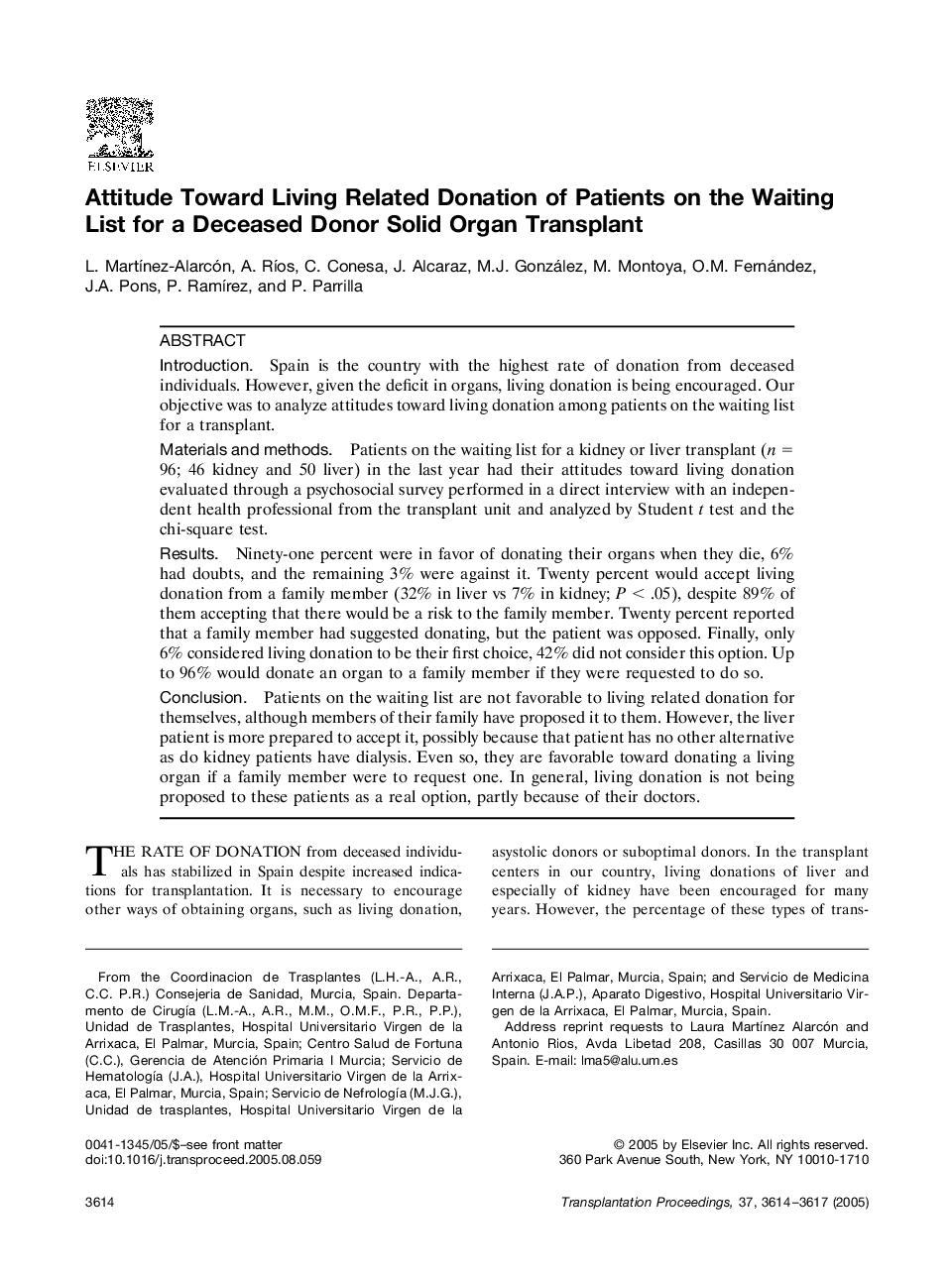| Article ID | Journal | Published Year | Pages | File Type |
|---|---|---|---|---|
| 4263905 | Transplantation Proceedings | 2005 | 4 Pages |
IntroductionSpain is the country with the highest rate of donation from deceased individuals. However, given the deficit in organs, living donation is being encouraged. Our objective was to analyze attitudes toward living donation among patients on the waiting list for a transplant.Materials and methodsPatients on the waiting list for a kidney or liver transplant (n = 96; 46 kidney and 50 liver) in the last year had their attitudes toward living donation evaluated through a psychosocial survey performed in a direct interview with an independent health professional from the transplant unit and analyzed by Student t test and the chi-square test.ResultsNinety-one percent were in favor of donating their organs when they die, 6% had doubts, and the remaining 3% were against it. Twenty percent would accept living donation from a family member (32% in liver vs 7% in kidney; P < .05), despite 89% of them accepting that there would be a risk to the family member. Twenty percent reported that a family member had suggested donating, but the patient was opposed. Finally, only 6% considered living donation to be their first choice, 42% did not consider this option. Up to 96% would donate an organ to a family member if they were requested to do so.ConclusionPatients on the waiting list are not favorable to living related donation for themselves, although members of their family have proposed it to them. However, the liver patient is more prepared to accept it, possibly because that patient has no other alternative as do kidney patients have dialysis. Even so, they are favorable toward donating a living organ if a family member were to request one. In general, living donation is not being proposed to these patients as a real option, partly because of their doctors.
